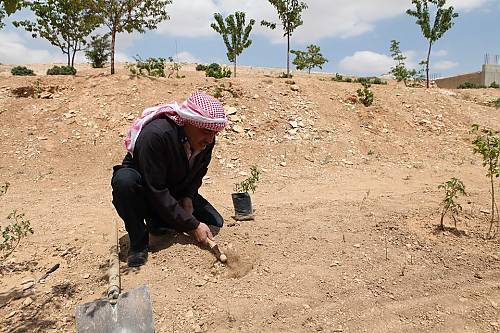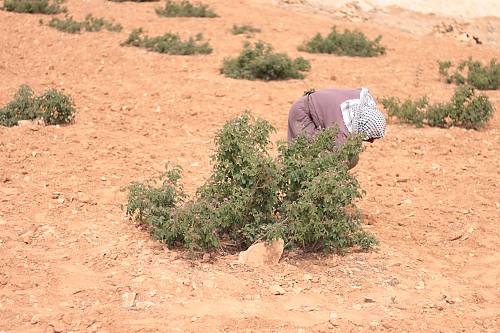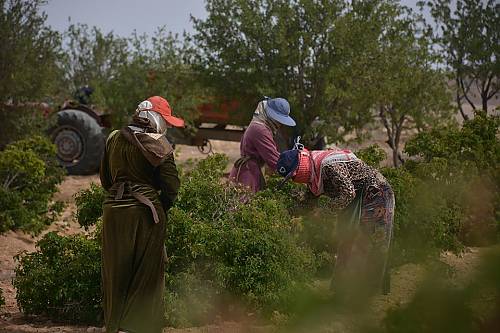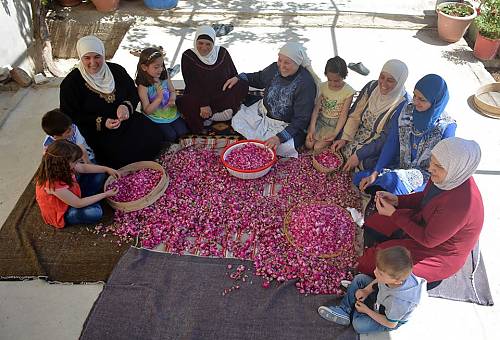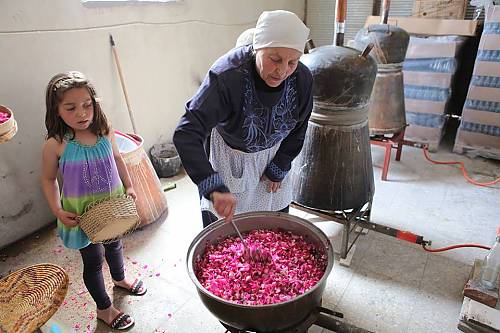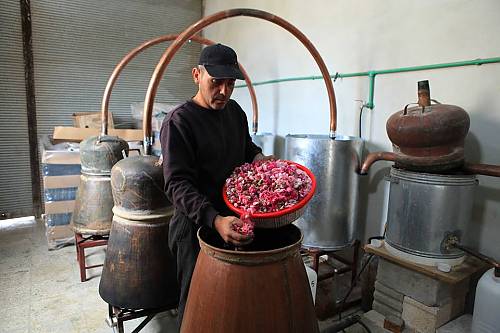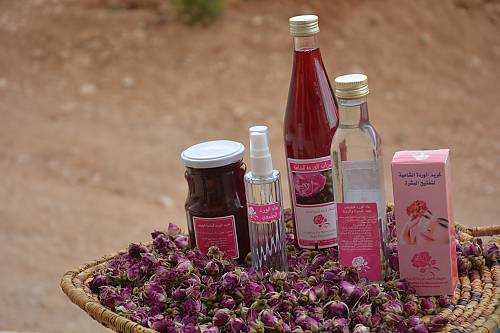Practices and craftsmanship associated with the Damascene rose in Al-Mrah
Inscribed in 2019 (14.COM) on the Representative List of the Intangible Cultural Heritage of Humanity

The practices and craftsmanship associated with the Damascene rose are mainly practised by farmers and families in Al-Mrah village, in rural Damascus, who possess expert knowledge of producing essential oils and traditional medicine from the Damask Rose, among other things, as well as the village community and families who organize the yearly Damascene Rose Festival. The Damascene Rose begins to bloom in May when the picking commences and the annual festival kicks off. Farmers and their families head to the fields in the early morning to handpick the roses and then return home by afternoon, when the whole family helps sort the rose buds that are dried to make tea. The other rose petals are stored and prepared for distillation. The women of the village help each other make rose syrup, jam and pastries as they sing along to local tunes. Apothecaries sell the dried Damascene Rose for its numerous medicinal benefits. The festival attracts people from many surrounding villages who come to take part and enjoy the atmosphere. Rose-infused dishes are presented by women and a collection of folk songs and incantations celebrating the Rose are sung by all. The festival is a testament to the element’s unfading cultural significance for its bearers and their enduring commitment to its safeguarding.
